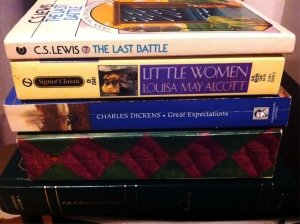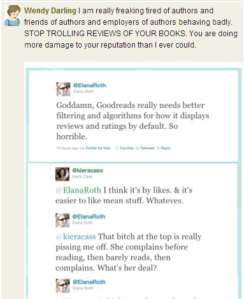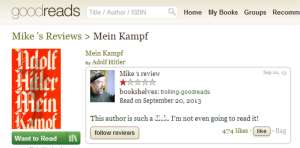 Times are different for writers. An author gives everything to their writing and sets aside many things to make sure it’s presentable. Only to realize the gut-wrenching writing was the easy part of the process.
Times are different for writers. An author gives everything to their writing and sets aside many things to make sure it’s presentable. Only to realize the gut-wrenching writing was the easy part of the process.
The hard part comes next: marketing.
Moving away from past authorship
In the past authors relied on editors, agents, and publisher to promote their books. However, with more books published and less money for each author, the industry pushed the marketing on the authors.
This transition has caused problems for authors.
Before the digital age authors’ access to reviews was limited. Reviews were written by the media or spread by word of mouth in local book clubs. Readers spent time in book stores reading back covers and asking employees for suggestions. Since authors couldn’t influence the reviews their time was devoted to their craft. They wrote and that’s it.
Moving into modern authorship
Now, every blogger, reviewer, and socially active person has the ability to write a public review of books. Couple that with authors promoting their own books and it spells disaster.
Here’s the issue, writers need good reviews to sell more books. No longer do people need to join a local book club or wait for Oprah to announce the next best read to find a book they’ll love. They just open their favorite site and see what’s good.
So if those reviews are negative then book ratings go down, people pass over the book, and sales tank. This concerns the author/marketer who needs those reviews to sell books, a dilemma.
We need reviewers but we don’t want the negative reviews. Yet, reviews are subjective based on many factors in a reader’s life. Maybe when she went to the library that young adult paranormal romance sounded perfect, but by the time she finish she wished it had been a horror fantasy and felt disappointed. Or maybe he bought the book because his buddy recommended it but he couldn’t connect to the first person present tense and abandoned the book.
Not everyone will love our books. In fact, only a small niche is going to enjoy it at all. Negative reviews should always be expected. How an author reacts to it is important.
Our behavior affects our product, especially when that behavior is public on sites such as: Goodreads and Amazon. Readers are the customer and how we treat our customers will impact our sales.
Authors and the entrepreneurship phase
I understand both aspects of this problem since I’m writing a book and I’ve worked in the marketing industry. We are artists of words, not of convincing strangers to love our words. However, with this new environment many authors seem to forget the other aspect of the writer’s life: entrepreneurship.
Owning a product for sale means authors take on the roll of manager: professional, helpful, understanding, complimentary, and willing to make the customer happy. A bad manager is someone who stirs up conflict with their customers and says or does negative things toward them.
A public figure needs to accept the negative personal comments and focus on the positive. Then learn from it and make the product better the next time.
Goodreads to the rescue
 I’ve seen Goodreads struggle in the past few months with authors and reviewers clashing about reviews. The site now warns authors how to respond to reviews. ←
I’ve seen Goodreads struggle in the past few months with authors and reviewers clashing about reviews. The site now warns authors how to respond to reviews. ←
Goodreads announced a new policy that essentially tells reviewers to be nice to authors. Though, this is intended to keep the peace, the management should treat the site like any other product review site.
When an employee of a company acts irresponsibly the customer calls that bad customer service. The book reviewer is the customer and the author is the owner. The person who needs to make the experience pleasurable is the author. The reader reviews and gives feedback.
Reviewers are intelligent and can spot a review that reads hate instead of reasonable and they will ignore those reviews. Goodreads should let the market sort out the problem instead of intervening. Though I’m sure it’s hard to have people complaining on both sides.
Customers need encouragement and assurance that their experience will be pleasing even if they say something that might hurt someone’s feelings. It wouldn’t be wise for Bill Gates or Jack Welch to go on a review site and complain about the bad reviews. In the same way, it isn’t a good idea for authors to respond to negative book reviews. This is an issue customers can handle and the authors need to adjust to.
Limiting reviewers ability to be honest also leads to posters making a point in this fashion:
I hope in the future this policy goes away or at least isn’t enforced. It’s bad for business.
P.S. I intended to do a character post, but I read Goodreads’ new policy about reviews and the responses from many book bloggers. I wanted to add my opinion. I’ll post this other topic soon.
Did you know about the Goodreads policy and what is your response?
I love to hear from you!
Thanks for reading my blog
A.G. Zalens


